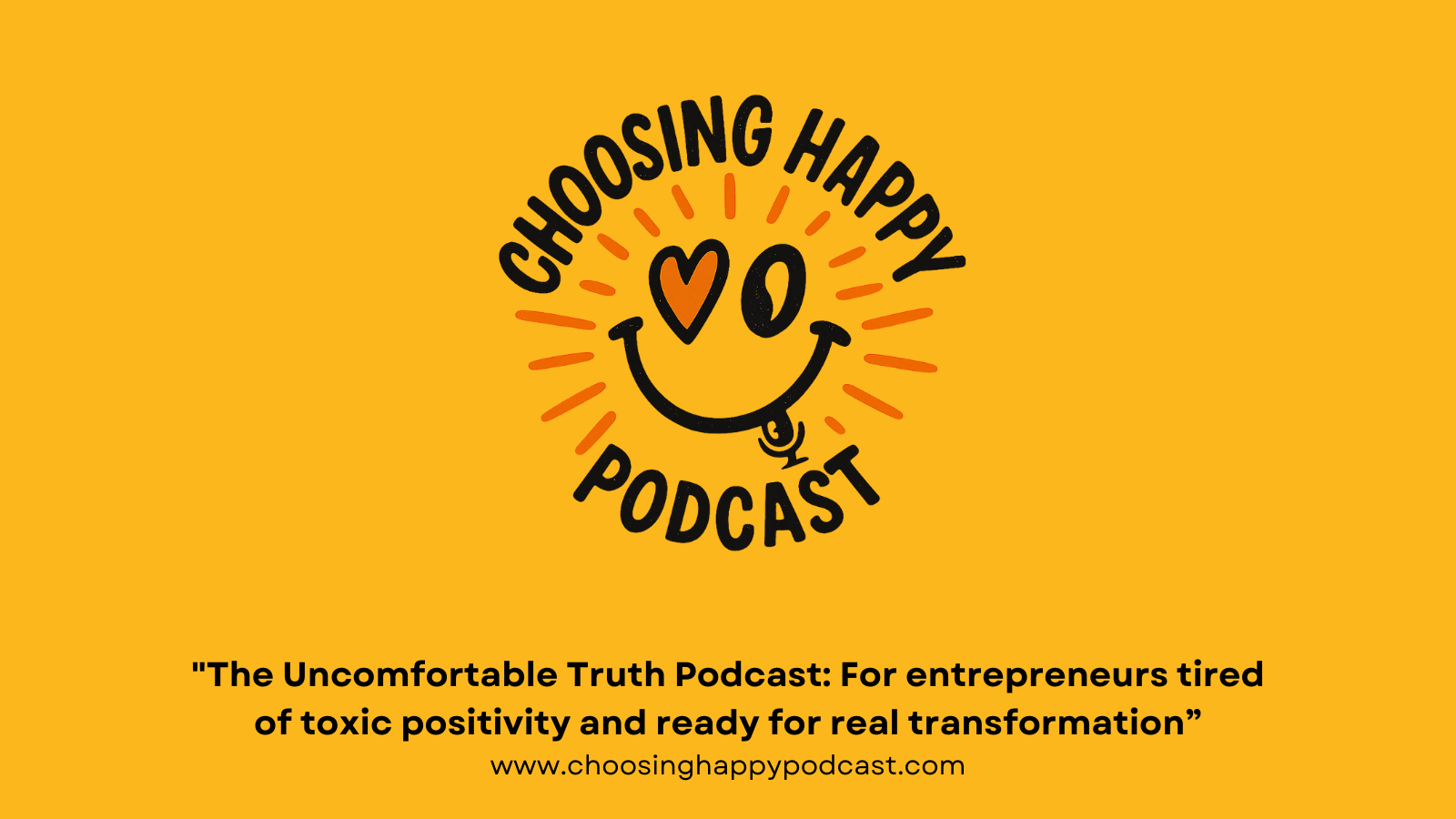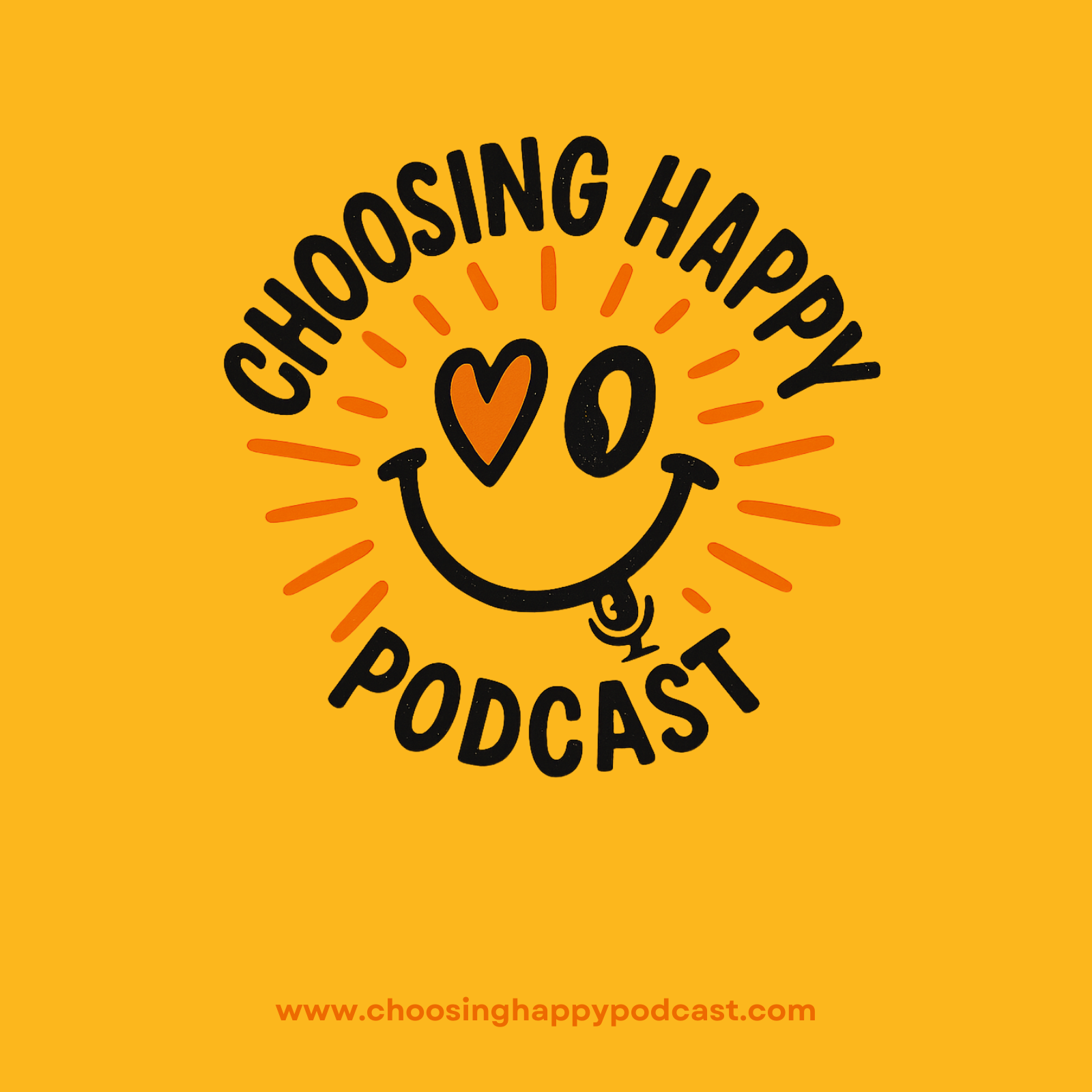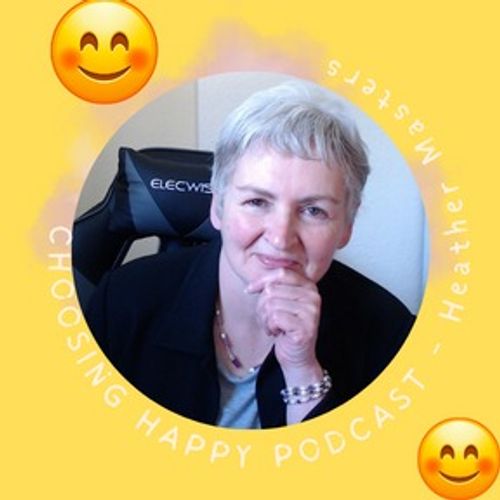Values Unveiled: The Hidden Drivers of Your Happiness
The Power of Values in Determining Fulfilment
Values are the guiding principles that shape our identity and influence our decisions, behaviours, and relationships.
Heather Masters delves into the importance of understanding our values and how they act as a compass in navigating life’s challenges.
By reflecting on personal experiences and identifying core values, we can align our goals with what truly matters to us, leading to greater fulfilment and motivation.
The episode explores practical steps for uncovering values, including the impact of context and how values can shift over time. Heather emphasises that recognising and resolving values conflicts is crucial for fostering meaningful connections and navigating the complexities of our rapidly changing world.
The Details:
Heather Masters offers a profound examination of values and their significance in our lives. Values are portrayed as the foundation of our identity, deeply influencing how we perceive the world and interact with those around us.
The episode presents a compelling argument for the necessity of identifying and understanding one’s values, suggesting that they serve as crucial navigational tools in both personal and professional realms.
Heather articulates several methodologies for uncovering core values, encouraging listeners to reflect on their life experiences and the motivations driving their actions.
Values Levels and Spiral Dynamics
The discussion extends beyond the individual, exploring how values shape community dynamics and can lead to conflicts when differing belief systems collide.
Heather introduces concepts from Dr. Clare Graves’ research on values systems, illustrating how these frameworks can help us understand societal behaviours and conflicts.
The episode culminates in an empowering call to action, urging listeners to engage in a values elicitation process to uncover their guiding principles. By aligning actions with their core values, individuals can not only enhance their personal happiness but also contribute to a more harmonious society.
This insightful reflection on values provides a roadmap for self-discovery and deeper interpersonal relationships.
Takeaways:
- Understanding your values is crucial as they act as a compass for navigating life's challenges.
- Values influence our decisions and motivations, shaping how we interact with the world.
- Identifying core values can reveal why certain goals may feel unattainable or in conflict.
- Recognising the hierarchy of values helps us understand our behaviours and motivations better.
- Values operate at both conscious and unconscious levels, impacting our decision-making processes.
- Engaging with our values can enhance our happiness by aligning our actions with what truly matters.
Chapters:
- 00:48 - Exploring Values in Our Lives
- 04:16 - Identifying Core Values
- 08:50 - Understanding Value Systems
- 12:39 - The Importance of Values in Today's Society
- 18:59 - Navigating Values in a Complex World
Let me know your biggest takeaways from this episode!
Share on social and Please like, share and subscribe. It really helps the podcast and I so appreciate it!
----------------------------------------------------------------------
If you would like more content like this sign up for my Sunday Newsletter and Join our community who are redefining what it means to thrive in the NEW world. Click here to subscribe and get some cool bonuses to help you immediately:
https://www.heathervmasters.com/sundaynewsletter
Podcast Details and Links
Heather Masters
Copyright 2026 Heather Masters
If you are enjoying the podcast and would like to donate you can do so here: (Thank you in advance)
Links:
www.choosinghappypodcast.com
https://www.heathervmasters.com/sundaynewsletter
Links referenced in this episode:
Companies mentioned in this episode:
- Headspace
What you can do now...
Sign up for the Sunday Newsletter at https://www.heathervmasters.com/sundaynewsletter
Join the new community at www.choosinghappy.co.uk/community
Sign up for my Awakened Entrepreneurs Free Video Series. https://www.takingyourbusinessonline.com/the-awakened-entrepreneur
Drop me a line with any feedback you may have at heather@choosinghappy.co.uk
Please take a moment to share and subscribe at www.choosinghappypodcast.com
And it would be really great if you could leave a review on Amazon, Google, iTunes or at Podchaser.com
https://www.podchaser.com/podcasts/choosing-happy-1878162/episodes
I do hope you find this episode useful. Once again, if you know someone who may benefit from listening, please share it.
Transcript
Hello and welcome to this week's Choosing Happy Podcast.
Host:I've been promising for a while to take a deeper look at values and why they are so important to us and the impact they have not just on the choices that we make, but our behaviors and how we show up at work, with our family, and in life in general.
Host:So stay tuned for this week's Choosing Happy Podcast.
Host:Hello and welcome to the Choosing Happy Podcast.
Host:In today's episode, I'll dive deep into the concept of values.
Host:What they are, why they matter, how to identify them yourself, and the research surrounding values as drivers, not just for individuals, but also for communities and nations.
Host:To kick things off, let's define what we mean by values.
Host:Values are higher, if you like, in the hierarchy of beliefs and things.
Host:They're higher, they're more powerful than fundamental beliefs, and they tend to have beliefs hanging off them.
Host:So if you have a value, for instance, you're religious and you have high religious values, then the beliefs around that religion, that construct, will follow from that value of your belief in God and your belief in what is right and what is wrong.
Host:Values shape our identity and they influence how we interact with the world, and they actually influence our behavior and they influence us in different contexts around life.
Host:And I'll go into that in a little bit more detail.
Host:So understanding our values is crucial because they serve as a compass helping us navigate life challenges and choices, but also understanding our values.
Host:Getting the unconscious conscious can help us choose differently in life when perhaps our values could be preventing us from achieving the things that we actually think we want to do.
Host:Now.
Host:The importance of values.
Host:They guide our decisions consciously and unconsciously.
Host:They act as a framework for making choices that align with who we believe we are and what is important to us for our relationships.
Host:They help us connect with others who share similar beliefs and priorities.
Host:And even deeper than that, we will share rapport and good relationships with people who are, as we are, quite often sharing the same values.
Host:But do you know really what that means, especially at an unconscious level as well?
Host:They drive our motivations.
Host:Values inspire us to pursue goals that resonate with our core beliefs.
Host:But more than that, values, especially the higher values, the what are really important to us will be the core motivation.
Host:If we have a value, for instance, around family, if that's one of our high values, everything that we do, our beliefs, our actions, will shape what we do in context of our life towards our family.
Host:So if our family is important, we may put family first before work, before our friends, before anything outside of our framework of values.
Host:Around family.
Host:So how can you identify your core values?
Host:Now here are some simple practical steps and then I'll go into the neuro linguistic programming techniques for identifying values.
Host:So you can begin by reflecting on your life experiences and think of moments when you felt truly fulfilled and proud, but also moments when you actually showed up beyond the odds because something was so important to you.
Host:Those moments that you got passionate and that you had huge desire and you followed through against odds, against the challenges that came up, that will indicate what your value was at the time.
Host:So for instance, if someone's value is around watching football, it's amazing what they can do to achieve a ticket to see their team playing in a final.
Host:Your values are very contextual but also very important because they are the drivers.
Host:They are the things that we will go all out to achieve.
Host:You can create a values list by highlighting the values that resonate with you most.
Host:You can actually download a values list especially for business businesses.
Host:If you do a search on Google, you can download a comprehensive list of values.
Host:But as I say, values can be quite contextual.
Host:So using the areas of your life, using a tool like the Wheel of Life with the different areas of your life which are usually family, community, work, finances, health and fitness, and also self care as well.
Host:So by downloading those and asking yourself what's important in each area as you can create a list of values from there.
Host:Or say you can search lists of values based on each of those areas because our values can change depending on the context.
Host:So your values at work might be very different from your values at leisure time.
Host:The other thing to note is that we have an overall hierarchy of values.
Host:So what are our values for Life?
Host:Identifying the 4 to 8 most important values to you for life can really explain why you behave the way you do and why you achieve what you do.
Host:The other thing to do is you can consider role models.
Host:People you identify with and admire.
Host:And why you admire them is usually the qualities or the values that they embody that you align with.
Host:You can also assess your emotional reactions by paying attention to situations that provoke strong responses from you.
Host:They often reveal underlying values in neuro linguistic programming nlp, if you do the values exercises there.
Host:The idea is to get to the deep unconscious values.
Host:Because sometimes it's the deep unconscious values that may be sabotaging us in our lives depending on what our goals are.
Host:So you can consciously want a goal, but if you have a value, a deep seated unconscious value that is contrary to that goal, you're unlikely to achieve it.
Host:So it's a real important thing to do to take the time out to really uncover your values.
Host:And it can help you in terms of changing your behaviors, in terms of actually changing how you work and recognizing when something that you.
Host:You didn't know was against your values is against your values, for instance.
Host:And by engaging in working out your values, you can really gain clarity about what your intention is for and what your intention is in certain contexts and situations.
Host:Now, research on values at higher level we have Claire Graves and spiral dynamics.
Host:One significant contributor to understanding values is Dr.
Host:Claire W.
Host:Graves, who developed the Graves value system.
Host:And his research identified distinct stages of value systems that reflect both individual and societal development.
Host:Now, value systems are a little bit different from values.
Host:We each have our individual values, but then we operate at a value system and we tend to have a preference for a level of the value system.
Host:It's something that we'll default to.
Host:There's quite a lot of work and detail in this, so I'm just going to skim over it.
Host:So for instance, level one is survival needs.
Host:So you can think of someone out in the wild who is purely trying to survive and how their values would be shaped is purely motivated by survival.
Host:Level two is safety and tribal needs.
Host:So that's the coming together of a community, but it's very tribal.
Host:It's about putting the tribe first, but again without much awareness beyond the tribe and still driven by tribal norms and traditions, by safety and survival.
Host:Level three is power driven behavior.
Host:So this is when the person realizes that he can lead the tribe or break free from the tribe.
Host:But level three is about focus on self and often has a rage associated with it.
Host:The narcissistic behavior.
Host:It's an individual's behavior about their own power and their own level of control.
Host:Level four is about sacrificing self to be rewarded later.
Host:And so we see the church and religions and a lot of governments at level four where it's order, stability and control.
Host:Level five is achievement focused.
Host:A lot of entrepreneurs are achievement focused.
Host:They are individual with a strong personal drive and motivation.
Host:They're breaking boundaries, they're disrupting.
Host:So these are the achievement focused people.
Host:Level 6 comes back to community, but it's about a more spiritual approach to the world where the focus in on consensus, agreement and being involved in a group.
Host:Seven is integrative thinking.
Host:So it's integrating all of the previous levels and standing individually.
Host:An individually oriented point of view where the person is self motivated, expressive, spontaneous and can deal with complex paradoxes without cognitive strain.
Host:So we have A broader perspective because we have that integration.
Host:So those are the general values levels we look at within neurolinguistic programming.
Host:Now, understanding dominant value systems within cultures can help predict conflicts in the developmental paths.
Host:For example, societies emphasizing values that prioritize social justice, that's the community orientated six while those at level five who are achievement focused might focus on economic growth and understanding.
Host:This is crucial in today's complex global landscape where different value systems can lead to misunderstandings or conflict.
Host:Why Values Matter Now?
Host:In an era marked by rapid change, socially, politically, environmentally, financially, understanding values is more critical than ever.
Host:And as communities confront issues, issues like inequality and climate change, recognizing the underlying value systems can foster dialogue and cooperation.
Host:And also by taking the values to the highest level, to understanding the broad values across the globe, what you tend to find is that most people are actually after the same thing at a higher level, and that can remove conflict and create more cooperation.
Host:How do values influence our lives?
Host:Many of our values operate at an unconscious level.
Host:As I said earlier, we're not always aware of them, yet they significantly impact our behavior and especially our decision making processes and how we respond.
Host:For example, if you value honesty but find yourself in a situation where lying seems easier, you may experience internal conflict.
Host:And the conflict arises because your actions contradict your core values.
Host:Values are, as I said earlier, drivers of behavior and can determine how we respond to challenges and opportunities.
Host:So when pursuing a goal that aligns with your values, you're more likely to stay committed and motivated.
Host:And the opposite is true.
Host:If a goal conflicts with your values, you may struggle to follow through.
Host:So that's one of the reasons that's really important to understand.
Host:You may not be getting a goal is because it could be in conflict with a value.
Host:Your values shape how you interpret experiences.
Host:For instance, someone who values community may view collaboration as essential, while someone who values and prioritizes individual achievement might see competition as important for achieving goals.
Host:As I said, understanding your core values can really influence whether you achieve them.
Host:When your goals align with your values, you're more likely to feel fulfilled and motivated to pursue them.
Host:And if a goal resonates with your core beliefs and your core values, you'll be more inclined to put in the effort and the commitment needed to achieve it.
Host:And for resilience, values provide a sense of purpose that can help you overcome any of the obstacles along the way and can kind of support this amazing belief that you're going to get it anyway because you're so determined and committed, because it's so in line with Your values, I mentioned earlier, values conflicts.
Host:And they can arise when individuals or groups hold different beliefs or values that clash.
Host:And these conflicts can be particularly intense because they touch on deeply held principles that define our identity, often relating to moral or ethical considerations.
Host:As I said earlier, your highest values will really be the drivers, consciously or unconsciously, in all areas of your life.
Host:Here are some characteristics of values conflicts.
Host:Values are deep, deep rooted beliefs.
Host:There are core beliefs.
Host:They're beliefs that individuals consider sacred intensity.
Host:These conflicts tend to be emotionally charged due to the personal nature and also due to the fact that they are so embedded and so unconscious.
Host:And we use them as fundamental to shaping our understanding of reality in our lives.
Host:And we also, because of that, find difficult to compromise.
Host:And resolving value conflicts can feel like a betrayal of one's principles, making it challenging to find common ground.
Host:Now, there's values conflicts, which are internal and external.
Host:The external ones can take place in, for instance, the workplace where employees clash over different views on work, life balance or ethical practices.
Host:And we also have interpersonal conflicts where friends or family members experience tension, where their beliefs about social issues can differ significantly.
Host:And I think we've seen that in spades over the last four years.
Host:So how do we navigate values conflicts?
Host:We identify our values to begin with so that we can really decide which ones we want to hold on to and which ones are truly non negotiable.
Host:And then we can also look at ones that we might allow flexibility with, because we can see that, yes, we may hold them at an unconscious level, but maybe they aren't as important now as they were to us in the past.
Host:And by uncovering values of each party in an external conflict and engaging in open dialogue, we can help foster discussions and respect different perspectives while seeking common ground.
Host:So for instance, two religions coming together to achieve a common ground where they can coexist.
Host:The other thing is practicing empathy, understanding the values and underlying beliefs and drivers of others, we can facilitate resolution.
Host:We don't have to necessarily accept those values as our own, but we again can look for the common ground and facilitate compromise.
Host:Why does understanding values matter so much now?
Host:Well, in today's rapidly changing world, marked by social, political and environmental challenges, where a lot of individuals are separate and are challenging each other, understanding values is more critical than ever.
Host:Recognizing different value systems within communities, within individuals, within kind of tribes, online if you like, can foster dialogue and cooperation, helping us navigate complex issues together.
Host:But understanding your own values and where you fit into the system can help you understand why you're reacting so strongly and why you're maybe not being as flexible as you thought you would be in a certain situation.
Host:So as I wrap up this episode, I encourage you to reflect on your own values.
Host:What principles guide your decisions?
Host:What is important to you in each area of your life, and really go deep.
Host:Keep asking yourself what's important till you've got a list, as I said earlier, of the values that you have in each area of your life.
Host:And then the idea is to create a hierarchy and find out what the top eight values in each area are, because those values are going to be the drivers consciously and unconsciously.
Host:And in what ways can understanding your values enhance your happiness?
Host:You'll find fulfillment by aligning with your values.
Host:And if you have values that are no longer beneficial to you, then there are ways to change them.
Host:But that's for another day.
Host:Thank you for joining me on this exploration of values on the Choosing Happy Podcast.
Host:I hope you've enjoyed the discussion.
Host:I hope it's inspired you.
Host:If you would like a values elicitation or a values coaching session to help you dive deeper into understanding your own values and the impact on your life, then do reach out.
Host:Drop me an email.
Host:The details are in the show notes and we can have a chat to do that for you.
Host:So stay tuned for my next episode where I'll continue exploring topics that help us choose happiness every day.
Host:Bye for now.
Host:Thank you so much for taking the time to listen to this week's episode.
Host:If you enjoyed it or think it would be valuable to others, please do share.
Host:And if you really enjoyed it, please leave me a review.
Host:It really helps the podcast.
Host:All of the links are in the show notes and I look forward to seeing you next week on the Choosing Happy podcast.



